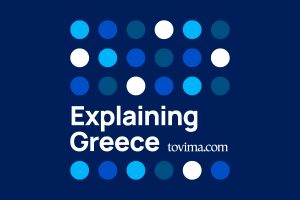A nationwide survey of public opinion on Greek-Albania relations points to a significant improvement in social and economic indicators between the two neighboring states in southeast Europe, along with the image of ethnic Albanians living in Greece. At the same time, the ongoing Beleri case appears have to negatively affected, to a certain extent, public opinion in Greece.
The survey, conducted by the University of Macedonia’s public opinion and market research unit, was presented on Monday at a downtown Athens hotel. It was implemented on a sample of nearly 1,170 people in mid-April 2024, and comes in cooperation with ELIAMEP’s South East Europe Programme and the Konard Adenauer Foundation.
On a positive note, more than eight in 10 respondents (82.5%) rejected any notion that Albanian migrants in Greece pose any threat to the country, a figure that rose from 74% in a similar 2019 survey. Similarly, nearly nine of 10 respondents (87.5%) consider that the children of Albanian immigrants in Greece are fully integrated into the local society.
Overall, attitudes about Albanians also recorded a majority positive rating (57%, up by 10 percentage points from the last such survey), while negative attitudes were a mere 6.5%.
Conversely, the case of Fredi Beleri, the major-elect of Himara municipality in southwest coastal Albania who was recently convicted of vote-buying after remaining in pre-trial custody that prevented him from taking the oath of office, was cited as an “aggravating factor” in accumulated opinions.
“Clearly the Beleri case has aggravated things, but not so much as the Greek media make it out… it’s not the most important issue,” Prof. Ioannis Armakolas, the head of the SE Europe programme at ELIAMEP, underlined. He also said the case has been mostly presented in a one-sided manner by Greek media, whereas some Albanian media have presented both sides.
Armakolas, also an academic at the University of Macedonia in Thessaloniki, said the specific case has attracted little international support for the Beleri side, with countries staying neutral. At the same time, he foresaw that official Athens will continue to “play hardball” with the specific issue.
He also cautioned that the success of integration in practically all areas of Greek-Albanian cooperation is threatened by political calculations, pointing directly at a reference made by Albanian PM Edi Rama during an address to supporters in Athens last month, where the latter commented on the situation of Albanian immigrant communities in Greece, speaking during a partisan address.
Regarding overall bilateral relations, although there’s a slight deterioration – possibly due to the “Beleri effect” – neutral opinions prevail. The most negative opinions -, sans the Beleri case – to emerge from the survey relate to respect of the rights of the Greek minority in southern Albania and overall rule of law in the EU candidate-state.
According to the survey, which was presented by Giorgos Siakas, the research director of the specific university unit and an assistant professor at the Democritus University of Thrace, very positive and consistently improving views cover social and economic relations, along with now overwhelming positive views to Albanian migration to Greece, a development that began in the 1990s.
Finally, a majority of respondents (55.5%) said they favor Albania’s accession to the EU within the next 10 years; 30% in one to five years 25.5% in five to 10 years,



